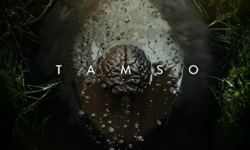JODHPUR:
Rajasthan’s rustic charms — the earthy culture of the Thar, the simple lives of the desert folk, the region’s brilliant colours, its music and sounds, and what may come as a surprise to many, its fragrances — will be brought to life at a one-of-its-kind festival hosted by Jodhpur’s landmark Arna Jharna: The Thar Desert Museum, in December.
Rupayan Santhan, an institution dedicated to the documenting of and research on the folklore, arts and music of Rajasthan, which is carrying forward the legacy of its legendary founders, oral historian and ethnomusicologist Komal Kothari and writer Vijaydan Detha.
Scheduled for Saturday, December 2, 2017, the event will feature a talk by renowned historian and author William Dalrymple on India’s “incomparable olfactory culture”, which was once renowned around the world and is now nearly lost. Titled Scents and Sensuality in India, the talk will have Dalrymple “sniffing out the history of ittar and assessing its hopes for the future”.
Visitors will also be treated to rare and magical folk songs on the fragrances and perfumes of the desert by the illustrious Langa and Manganiar musicians of western Rajasthan. Kothari, who was honoured with a Padma Bhushan for his contributions to the field of Indian culture in 2004, was a keen patron of folk music, and the first to record Langa and Manganiar musicians and take these beautiful sounds out of their traditional regions to the wider public.
There will be food stalls at the festival exploring the local, seasonal and organic produce of Rajasthan, based on Kothari’s agrarian division of the region into jowar (sorghum), bajra (pearl millet) and makka (maize) producing zones.
The Arna Jharna museum in itself is a must-visit destination for all art, culture and folklore enthusiasts. Nestled in Moklawas village, in the midst of desert flora and fauna, Arna Jharna is dedicated to the Thar.
“Rajasthan, to most people, evokes a picture of princely lifestyle and majestic forts, and there are wonderful monuments and institutions capturing that. But Arna Jharna is an attempt to showcase a world beyond that— the way of life of nomadic pastoralists, folk musicians, craftspersons against the backdrop of the Thar, their songs, myths and beliefs, objects of daily use, that are unique to this part of the world,” said Kuldeep Kothari, the son of the late Komal Kothari, and Secretary, Rupayan Sansthan.
The museum has galleries dedicated to brooms, musical instruments, pottery and puppetry that highlight the life, leisure and labour of the people of the desert.
Kuldeep Kothari explained that the museum is one aspect of the larger institution of Rupayan Sansthan, the other being a massive archive of audio-video recordings of oral traditions from Rajasthan —folk tales, songs, music, drama — painstakingly put together by Komal Kothari and the numerous illustrious scholars associated with the institution over many decades, offering a profound insight into what lends this region it unique identity.
Sahapedia, which has committed itself to helping strengthen Rupayan Sansthan, says the work done by Rupayan Sansthan is of immeasurable cultural and artistic value.
“Kothari, the mighty oral historian and Detha, the masterful storyteller, formed a formidable intellectual partnership. The museum and the documentation done by Rupayan reflect their passion for the subject and their scholarliness. This is the kind of in-depth scholarship that Sahapedia thrives on, so we are natural partners,” said Dr.Sudha Gopalakrishnan, Executive Director of Sahapedia.
Sahapedia has helped design the new updated website for Rupayan Sansthan-Arna Jharna, which will be launched at the “Stories of the Desert” event.
The Arna Jharna museum is also listed in www.museumsofindia.org , a flagship project of Sahapedia that aims to map every one of the nearly 1,000 known museums in India on a single, publicly accessible, digital platform. It currently hosts information on around 150 museums across 15 cities.
At the event, Sahapedia will officially launch the second phase of its Museum Mapping project to add 250 more museum listings, and initiate the process of making the digital platform “transactionary”, so the public cannot just view information on the museums but also buy entry tickets or souvenirs or publications from the museums and access other services online.
Entry to the “Stories of the Desert” event is free, but online registration is required. Passes are available, in Jodhpur, at the Rupayan Sansthan office in Paota or all the outlets of 15 A.D. Bakery, and, in Delhi, at the Sahapedia office. Registration is possible and passes are issued on a first-come-first-served basis. The programme will start at 3.30 in the evening on December 2.




